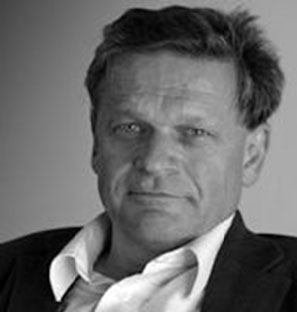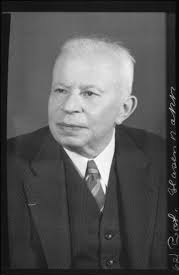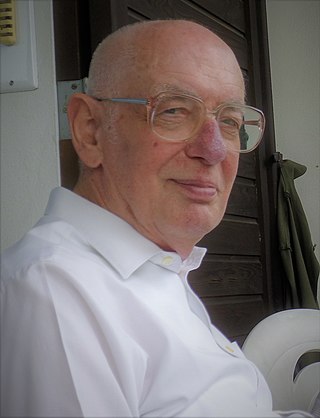Heinrich Roth was a missionary and pioneering Sanskrit scholar.

The Gottfried Wilhelm Leibniz Prize, or Leibniz Prize, is awarded by the German Research Foundation to "exceptional scientists and academics for their outstanding achievements in the field of research". Since 1986, up to ten prizes have been awarded annually to individuals or research groups working at a research institution in Germany or at a German research institution abroad. It is considered the most important research award in Germany.

The German Academy of Sciences at Berlin, German: Deutsche Akademie der Wissenschaften zu Berlin (DAW), in 1972 renamed the Academy of Sciences of the GDR, was the most eminent research institution of East Germany.

Hermann Abert was a German historian of music.
Karl Friedrich Geldner was a German linguist best known for his analysis and synthesis of Avestan and Vedic Sanskrit texts.
Siegfried Lienhard was a professor of Indology at Stockholm University and a scholar of Sanskrit and the Newar language.

Axel Michaels is a Professor of Classical Indology and Religious Studies at Heidelberg University, former Co-Director of the Cluster of Excellence "Asia and Europe in a Global Context" (2014-2019) and since 2014 the Director of the research project Documents on the History of Religion and Law of Pre-modern Nepal. He also was the Speaker of the Collaborative Research Centre SFB 619 “Ritual Dynamics” from 2002 until 2013.
Günter Grönbold is a German Indologist and Tibetologist. He was head of the Oriental Section at the Bayerische Staatsbibliothek Munich. He is an authority on the Pāli Canon and the Buddhist art of the Silk Road and has translated various Sanskrit and Tibetan texts into German.

Otto Max Helmuth von Glasenapp was a German indologist and religious scholar who taught as a professor at the University of Konigsberg in East Prussia (1928–1944) and Tübingen (1946–1959).
Karl-Wolfgang Zschiesche was a German physician and pathologist.
Walter Slaje is an Austrian Indologist.

Peter Oehme is a German physician and pharmacologist. In 1977 he founded the East German Drugs Research Institute, serving as its director from January 1977 till December 1991 when the institute was reconfigured in the context of German reunification.

Michael Roth was a German engineer and professor of automation, specializing in microprocessor technology, computer science and sociology as well as philosophy of science. He was one of the pioneers in the area of computer engineering in Germany.
Ernst Leumann was a Swiss Indologist and a pioneer of the research into Jainism and the languages of Turkestan whose work is in consideration even today.

Betty Heimann was the first woman Indologist to habilitate in Germany. After the Nazis banned Jews from holding academic positions in Germany in 1933, she taught at the University of London and became a British citizen. After the end of World War II she founded the Department of Indian Philosophy and Sanskrit at the University of Ceylon.

Peter Heinz Feist was a German art historian.
Kurt Hübenthal was a German operatic bass baritone, director and music teacher. He was professor for singing at the Hochschule für Musik Franz Liszt, Weimar.

Jürgen Hamel is a German astronomy historian. His research areas are the history of astronomy in the Middle Ages and the early modern period, the period around 1800, the history of astrophysics, astronomy and cultural history, and the history of astronomical instruments.

Dieter Bernhard Herrmann was a German historian of astronomy and author of numerous popular science books on astronomy. He was director of the Zeiss Major Planetarium in Berlin from 1987 to 2004. In his scientific work he dealt with the early development of astrophysics and the application of quantitative methods in the history of science.

The Leibniz-Sozietät der Wissenschaften zu Berlin is a German-speaking association of scientists founded in Berlin in 1993 in the legal form of a registered association. It is dedicated to interdisciplinary and transdisciplinary exchange and the discussion of fundamental problems in science and society. The association continues the activities of the Academy of Sciences of the GDR with personnel continuity.












